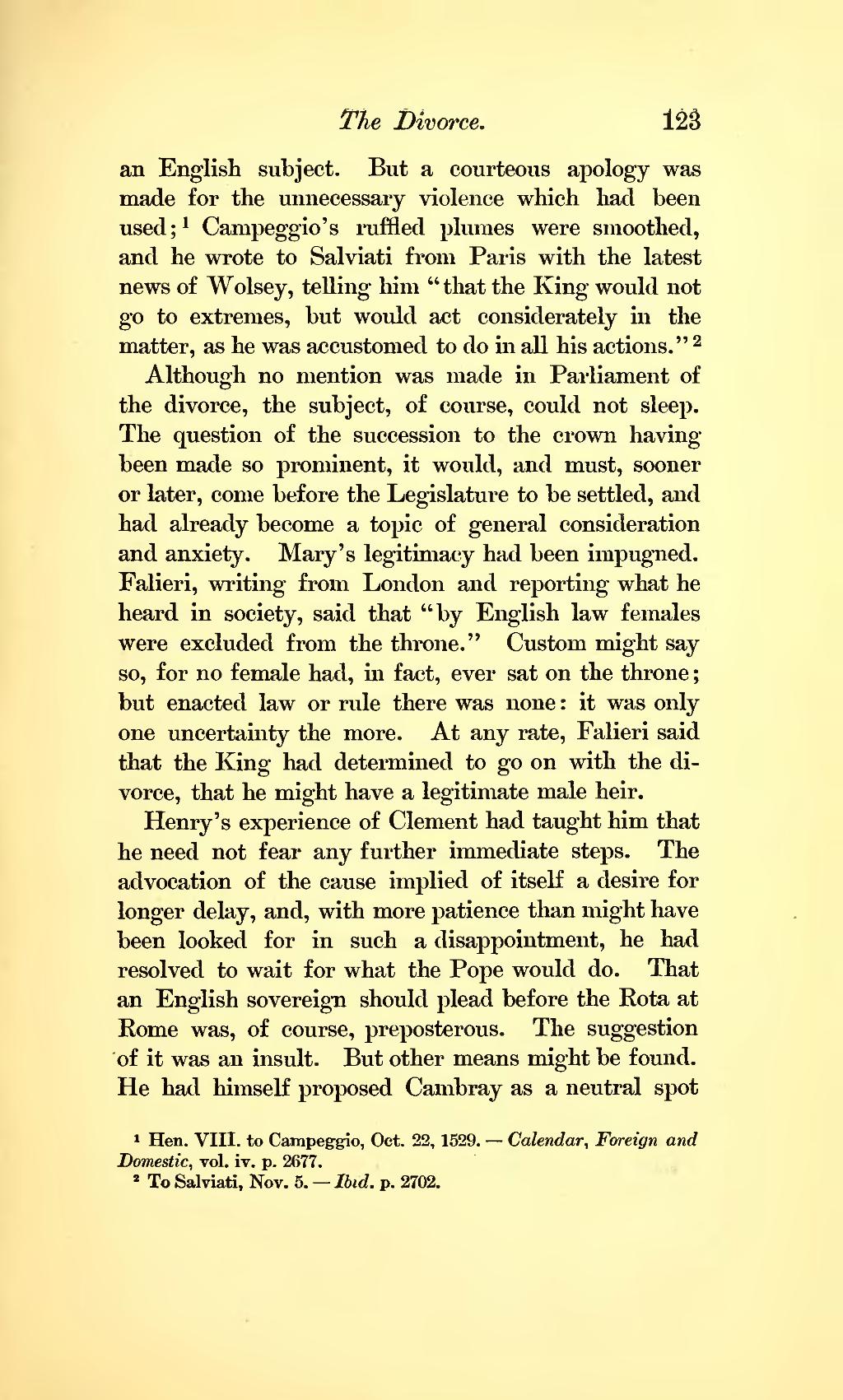an English subject. But a courteous apology was made for the unnecessary violence which had been used;[1] Campeggio's ruffled plumes were smoothed, and he wrote to Salviati from Paris with the latest news of Wolsey, telling him "that the King would not go to extremes, but would act considerately in the matter, as he was accustomed to do in all his actions."[2]
Although no mention was made in Parliament of the divorce, the subject, of course, could not sleep. The question of the succession to the crown having been made so prominent, it would, and must, sooner or later, come before the Legislature to be settled, and had already become a topic of general consideration and anxiety. Mary's legitimacy had been impugned. Falieri, writing from London and reporting what he heard in society, said that "by English law females were excluded from the throne." Custom might say so, for no female had, in fact, ever sat on the throne; but enacted law or rule there was none: it was only one uncertainty the more. At any rate, Falieri said that the King had determined to go on with the divorce, that he might have a legitimate male heir.
Henry's experience of Clement had taught him that he need not fear any further immediate steps. The advocation of the cause implied of itself a desire for longer delay, and, with more patience than might have been looked for in such a disappointment, he had resolved to wait for what the Pope would do. That an English sovereign should plead before the Rota at Rome was, of course, preposterous. The suggestion of it was an insult. But other means might be found. He had himself proposed Cambray as a neutral spot

